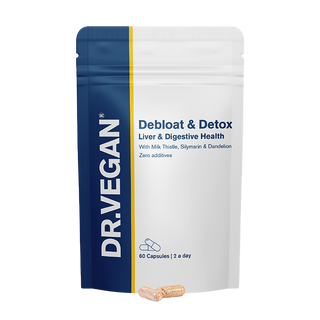Diet & lifestyle changes after gallbladder removal

Removing your gallbladder may sound daunting, but it's actually a common procedure. Understanding and navigating changes to your diet and lifestyle is an important part of helping you thrive after surgery. Naomi Rowling provides some important tips and strategies to help you adjust after gallbladder removal.
Can you survive without your gallbladder?
Yes, you can survive without your gallbladder. The liver will continue to produce bile, however instead of storing it in the gallbladder, the bile will enter your intestines directly. You can live a healthy life post-removal, however you may need to make adjustments to your diet and lifestyle.
Wondering when to seek medical attention? Intense pain and nausea are signs you may need to go to the doctor. Read more on the signs of gallbladder issues and when to seek medical attention. You may also be interested in reading about gallstones and at what point you may need to get them removed.
What needs to be done after your gallbladder is removed
After the removal of the gallbladder, the root cause of issues still need to be addressed. Nutrient intake needs to be optimal and the same suggestions for supporting gallbladder health can be followed even after removal of the gallbladder.
Everything starts with superlative self-care: optimising our diet so we eat the best, most nourishing foods that we can, managing stress, and creating and leading a more balanced life. Taking control of your health is one of the most empowering decisions you can make.
Support your liver
The toxic load in the body needs to be addressed, and supporting the liver is vital for this. You may be interested in Debloat & Detox, an advanced formula of botanicals and amino-acids to naturally eliminating toxins from your liver and provide daily protection to your liver. Learn more about the best foods for detoxing your liver. Medications affect the functioning of the liver, and it is the liver that breaks down gallstones. There may be effective natural alternatives to medication to support your liver health.
Maintain hormonal balance
Hormones including oestrogen, insulin and cortisol need balancing. A leaky gut needs to be healed. If you're not sure what supplements to take to support hormonal balance, reach out to our team of nutritionists by emailing them at team@drvegan.com.
Replace lost bile
Purified bile salts can be used post-operatively to replace the surge of bile that occurs when a meal is eaten. Because the body no longer has anywhere to store bile, it constantly drips out like a leaking tap, which means not enough is available at mealtimes after gallbladder removal. This is also why the digestion of fatty meals can become problematic, but it's important to ensure you're gaining sufficient healthy fats in your diet - low fat diets can result in an insufficiency of essential fatty acids. Understand the difference between healthy fats and unhealthy fats.
A person without a gallbladder would benefit from seeing a nutritional therapist or nutrition practitioner to ascertain the root causes of symptoms, find solutions for improving bile homeostasis and develop strategies for supporting liver health. Remember, you cannot out-supplement a poor diet high in refined, processed, nutritionally devoid foods.
Manage stress
Emotional issues need to be addressed as well. Importantly, stress is a BIG driver of both thyroid and digestive dysfunction (including gallbladder). Finding ways to reduce and better manage stress is an important strategy. The liver is linked to emotions of anger, and the gallbladder is linked to emotions of bitterness and resentment, so detoxing emotionally as well as physically is key.
Diet recommendations
After your gallbladder has been removed, it's important to adjust your diet to aid digestion because some foods can be harder to digest without a gallbladder.
- Avoid highly processed foods, especially fried, greasy, fatty or spicy foods. You may be interested in reading about ultra-processed foods: dangers and how to avoid them.
- Consider a more plant-based diet. Diary and meat products can be harder for your body to digest without a gallbladder.
- High fibre foods like beans and lentils can help to improve digestion. Learn why fibre in your diet is essential.
- Incorporate healthy fats into your diet.
Discover more liver and gallbladder-friendly diet tips.
Browse our range of award-winning vegan supplements and probiotics.
You may also enjoy reading:
- Should you take probiotics after antibiotics?
- Difference between soluble & insoluble fibre
- Latest gut health research: IBS causes & symptoms revealed
- Acid reflux? Best 3 foods to eat and avoid
- Do I need to take a fibre supplement?
- Why fibre in your diet is essential
Want to hear more from our nutritionists? Sign up to our email newsletter for insights and exclusive offers:


















